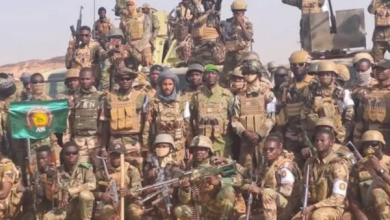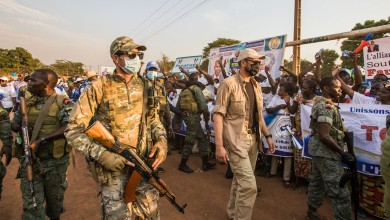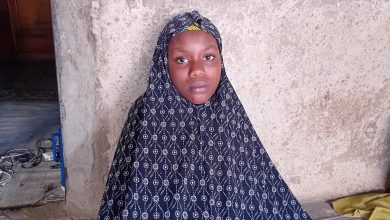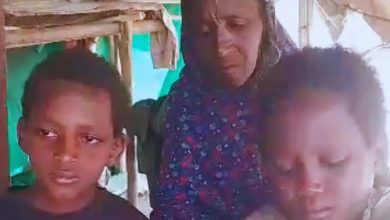NYSC Doctors At The Mercy Of COVID-19 Cry Out
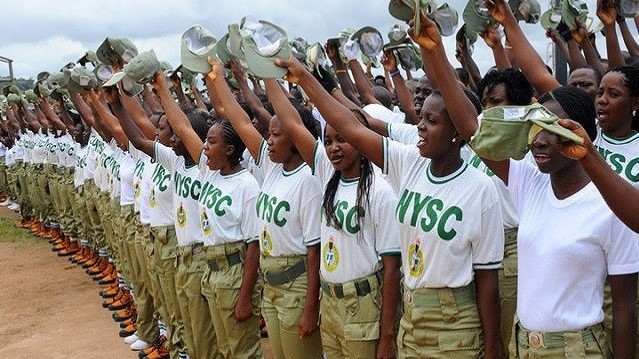
Elizabeth Bassey* has gone on self-isolation twice since the COVID-19 pandemic broke out in Nigeria.
She has been frustrated, wondering if she had caught the virus, twice since March.
After each of the isolation periods, Bassey returned to work grossly under-protected in the hospital where she works as a medical doctor.
Like most of her colleagues, she was deemed unqualified to get the already-scarce Personal Protective Equipment (PPEs), required for medical frontline staff because she is a National Youth Service Corps (NYSC) member.
Some doctors undergoing the one year NYSC programme told HumAngle that they were treated like “second class citizens sent to face the virus in the wild while being poorly protected and remunerated”.
For Bassey and a host of other NYSC-doctors, it is the survival of the fittest with no appreciation for the sacrifice they make while most corps members are nestling safely at home hoping for the health crisis to end.
No break for medical corps members
On March 18, NYSC management shut down all orientation camps nationwide over the spread of coronavirus.
The Lagos State NYSC Coordinator, Eddy Megwa, told corps members during morning meditation on the parade ground to leave the orientation camp as soon as possible.
“We have been asked to close down all orientation camps and discharge the corps members to their various places of primary assignment,” Megwa said.
He said the abrupt ending of the camp was part of preventive measures taken by NYSC against the spread of deadly coronavirus in the country.”
At this time, the virus had killed over 7,000 people globally while three cases of the virus had been confirmed in Nigeria.
HumAngle gathered that many corps members maintained social distancing rules and observed the lockdown against the spread of the virus while those in the medical field could not afford the ‘luxury’. The numbers grew astronomically and medical frontline personnel became more exposed to the virus, each day.
In Nigeria, 812 health workers have tested positive for the virus with 75 per cent of the patients contracting the disease from unknown sources.
The Director-General of Nigeria Centre for Disease Control (NCDC), Dr Chikwe Ihekweazu, disclosed this at the daily Press conference by the Presidential Taskforce on COVID-19 on Monday in Abuja.
He added that 23 per cent of patients were contacts of people who returned to the country from abroad and only two per cent of the infected persons were people who returned from abroad.
Joshua, one of the NYSC-doctors who spoke with HumAngle, explained that there was a looming fear among his colleagues (fellow corps members), who wondered when the virus “will get to our turn”.
“It is almost as though the government does not care enough to provide PPEs and when they come, the senior colleagues take them and ask us to manage.
“I am scared everyday that I have to go to work and while my mates are at home, my services are essential yet I cannot get the protection that I need,” Joshua said.
Second class doctors
Enitan became a doctor because of his passion to save lives. Through seven years of grueling medical school, it was the passion that kept him going.
Like everyone else, he did not see the pandemic coming but when it came to Nigeria, he refused to go home like other corps members.
Enitan told HumAngle that while his parents urged him to come home, he chose to stay in Delta State in the hope of contributing his quota to the management of the disease.
The numbers began to grow and as they grew, he soon learned his place in the medical chain.
He described himself as a ‘second-hand doctor’, a term he believed best defined the way he and his fellow corps member-doctors were treated in the hospitals.
He said, “The issues have always been there. They do not regard younger doctors and they talk down at you. With COVID-19, these issues are amplified.
“It is as though they want you to die first. So, you are sent to see patients with no protective materials or made to reuse the ones you ought to dispose of,” Enitan said.
His frustrations were echoed by Chidi, who had a heated argument with his boss over the lack of protective materials.
“This is scary. The other day, my boss asked me to see patients with only a pair of hand gloves.
“Apart from that, he wanted all of us to start wearing the reusable cloth masks instead of the standard disposable masks.
“I cannot begin to tell you how much this exposes us to harm. I understand that the materials are insufficient but what is worth doing is worth doing well,” he said.
Another doctor, Loveth, said, “As a passionate Christian, I see my job more or less as a calling/ministry.
“So when this pandemic came to town, I saw it as an opportunity to contribute my quota in fighting this monster. However, the system has not made the job easy, to put it mildly. We barely have any Personal Protective Equipment to work with.
“No, I don’t mean the ones with tongue-twisting names. It is the basic ones like facemask, hand sanitisers, gloves, etc. Running water with soap is a luxury.
“Going to work each day has been akin to going to a battlefield with rubber bullets against an enemy with bazookas.
“Attempts to bring this to the notice of the management have led to me being tagged as ‘stubborn’, ‘trouble-maker’, ‘disloyal’ and other unprintable names,” she lamented.
Allowance for health workers but corps members left out
On 27, the Federal Government announced that a special COVID-19 hazard and inducement allowance of 50 per cent of Consolidated Basic Salary will be paid to all health workers in Nigerian Teaching Hospitals, Federal Medical Centres (FMCs), and designated COVID-19 centres for the first three months in the first instance.
The Minister of State for Health, Olurunnimbe Mamora, said that the Federal Government agreed to shelve the payment of N5,000 hazard allowance, which had been in existence since 1991.
He added that a Memorandum of Understanding had been signed with health professional associations and unions as regards this.
On May 1, The Lagos State Government announced additional life and health insurance for all frontline health workers in the state.
The Governor of Lagos State, Mr Babajide Sanwo-Olu, said “I should also mention that we have put in place additional health and life insurance for all our frontline health workers in the state to ensure that they are adequately insured. This gives them insurance protection on two levels.
“As part of the ongoing efforts to contain the spread of COVID-19 in Lagos, we approved a 400 per cent increment in the Hazard Allowance of Health Officers in the State for the month of April.
“We have also introduced a COVID-19 Allowance for all our frontline workers, which is a very generous amount that takes cognizance of the heightened risks of the jobs they have to do. All these are intended to appreciate the dedication of all our Health Officers in the fight against COVID-19,” he said.
HumAngle learnt that in all of these, corps members serving as medical frontline workers have not received any additional compensation.
Some corps members noted that they experienced a financial downgrade during their service year compared to their internship year.
The average salary of a medical intern is about N150, 000 which crashes to about N50, 000 once they become corps members.
Despite this drop in standard of living, those working under the harsh COVID-19 conditions have received no bonus or incentives.
Loveth said, “Let’s not delve into hazard allowance, insurance, and other financial benefits.
“I am currently being owed two months’ salary, without any logical explanation. The psychological impact of all these can only be imagined.”
The corps medical practitioners appealed to the government to consider their flight, provide more PPEs and compensate them accordingly.
They said that they had drawn the attention of NYSC management to the situation but did not receive any response.
Similarly, HumAngle made attempts to get the NYSC authorities to address the allegations but did not succeed as officials refused to answer telephone calls made to them.
*Names changed to protect the identities of respondents
Support Our Journalism
There are millions of ordinary people affected by conflict in Africa whose stories are missing in the mainstream media. HumAngle is determined to tell those challenging and under-reported stories, hoping that the people impacted by these conflicts will find the safety and security they deserve.
To ensure that we continue to provide public service coverage, we have a small favour to ask you. We want you to be part of our journalistic endeavour by contributing a token to us.
Your donation will further promote a robust, free, and independent media.
Donate Here
